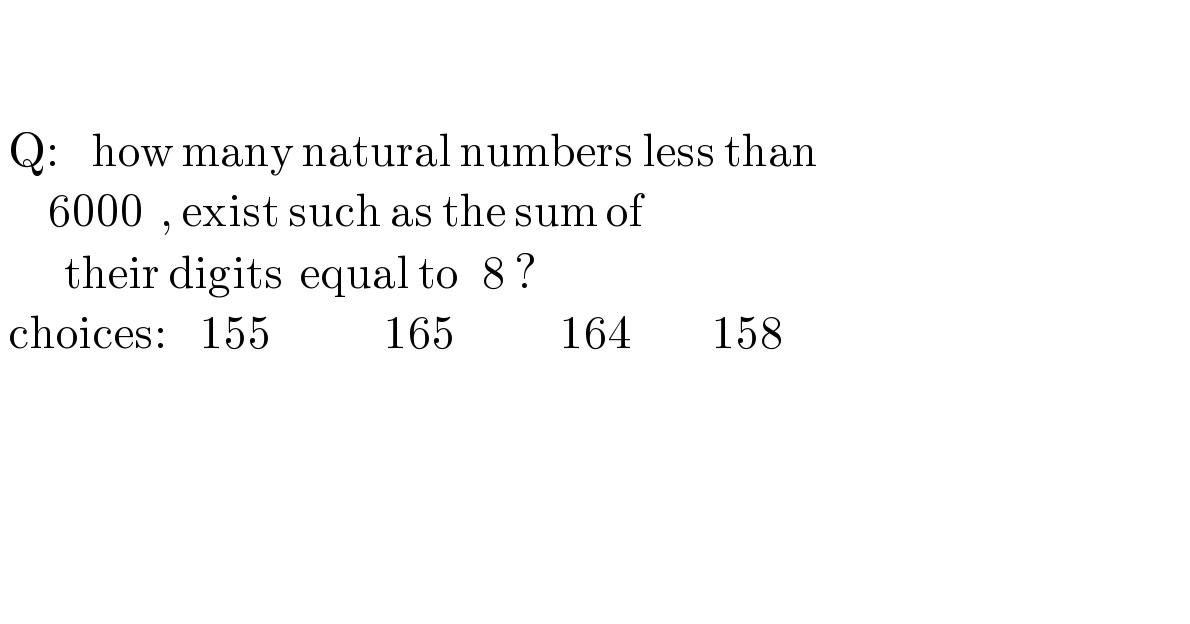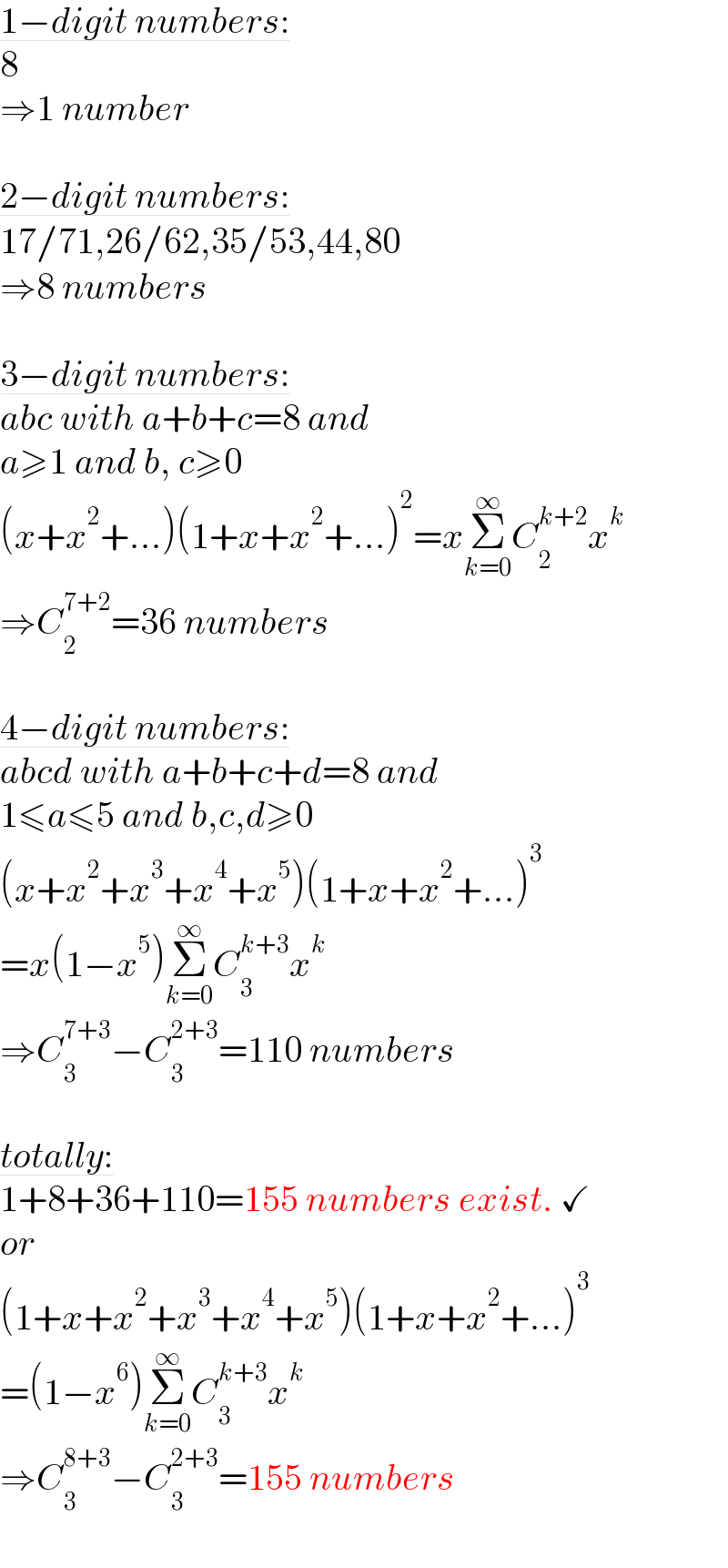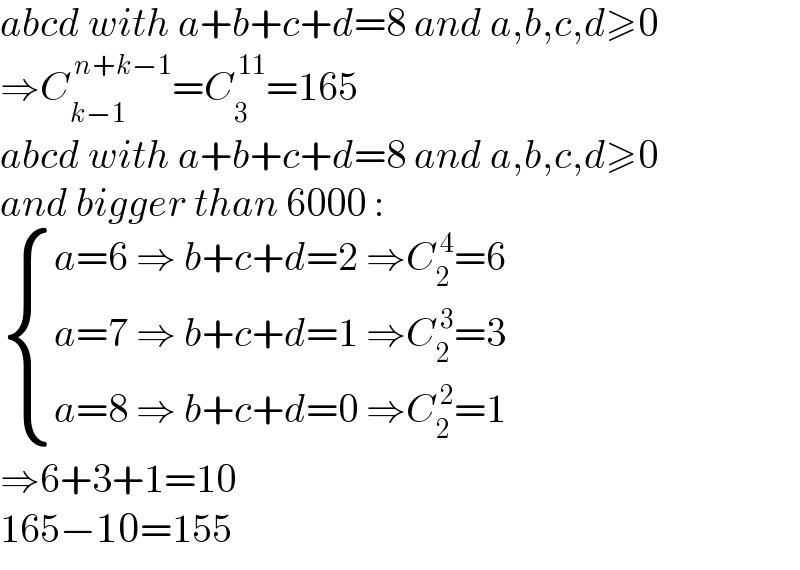
Question and Answers Forum
Question Number 172802 by mnjuly1970 last updated on 01/Jul/22

Answered by mr W last updated on 02/Jul/22

Commented by Tawa11 last updated on 01/Jul/22

Commented by mr W last updated on 02/Jul/22

Commented by mahdipoor last updated on 02/Jul/22

Commented by peter frank last updated on 02/Jul/22

